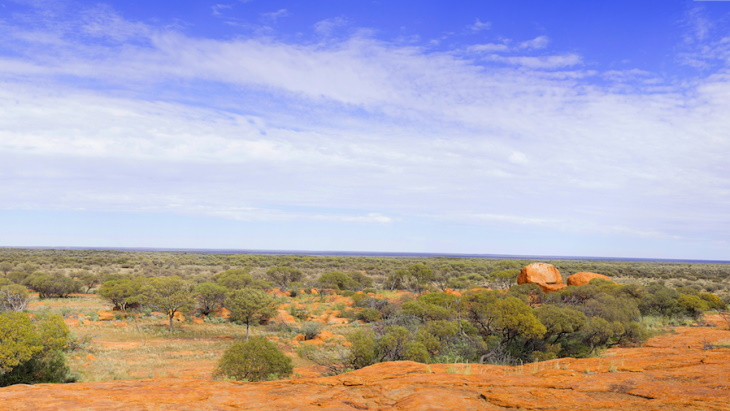
Yeelirrie: one of four uranium projects excluded from the ban (Image: Cameco Australia)
Western Australia is home to a "considerable share" of Australia's uranium but cannot capitalise on this, due to the state government's 2017 ban on uranium mining, the Chamber of Commerce and Industry of Western Australia (CCIWA) notes in its report. The ban conditionally excludes four uranium projects that had already received ministerial approval from the previous government: Wiluna, Kintyre, Mulga Rock and Yeelirrie.
South Australia and the Northern Territory currently allow uranium to be mined and exported, proving the industry is safe and sustainable, the CCIWA said. Last year South Australia produced around 5,469 tU: Western Australia has capacity to produce an estimated 8,000 tonnes per year, it added.
Other Australian states have been able to capitalise on increasing uranium demand and prices that have "skyrocketed" over the past year or so because of a global shift towards nuclear power in countries like China, France, India, Japan, South Korea, the United States and the UK, CCIWA Chief Economist Aaron Morey said. "WA has the technical skills and know-how to reignite the uranium mining industry as well as the export infrastructure to get it to market," he added.
He also said attitudes were changing thanks to advances in technology and an understanding of the role nuclear energy could play in reducing global emissions. "The ban on new uranium mines in WA was driven by environmental, health and safety concerns, but these concerns are not significantly different to those faced by any mining operation. WA is a mining state with a reputation for safety and world's best practice. We have a strong regulatory framework, existing infrastructure and all the skills needed to safely mine and export uranium," he added, noting that uranium exports are also bound by Australian legislation to ensure they are only used for energy production and not in the development of nuclear weapons. "If South Australia and the Northern Territory can do it, there's no reason why WA can't."
Citing last year's COP28 Summit, where 22 countries signed a ministerial declaration recognising the need to triple global nuclear energy by 2050, Morey said uranium demand will continue to be high, while "supply constraints look set to worsen". Allowing uranium mining in Western Australia would harness an opportunity to supply to countries already using nuclear power, he said, adding "If they don't buy uranium from WA, they'll simply buy it elsewhere".
Researched and written by World Nuclear News